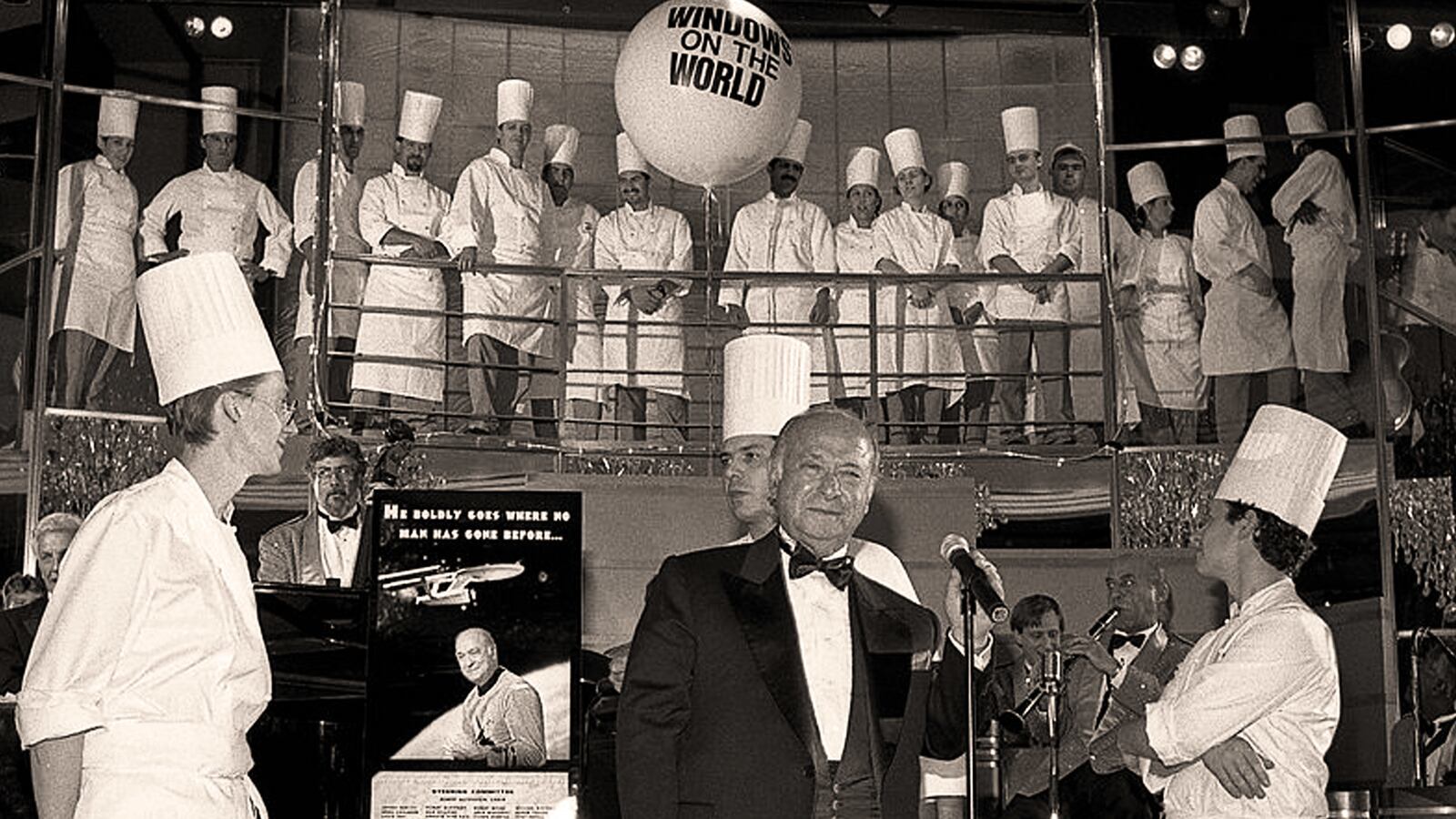During the many years in which I have reported on food, whether served in restaurants, sold in shops or dished out in institutions such as schools, hospitals, or airlines, I have almost always found that it is the person at the top who makes a major difference. The attitude, standards, and humanity of said leader invariably filter down through the staff and is reflected in the most basic of consumer levels.
In that regard, I have never known nor worked for anyone who was so directly responsible for a restaurant’s reputation as Joseph H. Baum, the driving force behind Restaurant Associates. In its heyday, the company operated numerous famous establishments, including the Hawaiian Room, the Newarker (at the New Jersey airport), the Rainbow Room, the Forum of the Twelve Caesars, La Fonda del Sol and, most notably and historically important, the Four Seasons in the Seagram Building on Park Avenue in New York. (He would later go on to open the legendary Windows on the World in the World Trade Center.)
Closed a few months ago, the original incarnation of the Four Seasons is virtually extinct, but is supposed to reopen in a new location. (Full disclosure: I am consulting with the Major Food Group, the team taking over the Seagram Building space.) It will be interesting to see which element, if either, survives the legend—the physical place or the restaurant’s name.
Born in Saratoga Springs, New York, to a family that ran a resort hotel, Baum dreamed of greater things and, after working menial hotel and restaurant jobs, he honed his skills at Cornell University’s famed hotel school and then fought in World War II. What amazingly emerged from such a conventional background was the spirit of film impresario Cecil B. DeMille, a man who wanted to be an over-the-top creative, completely far out and passionate (bordering on obsessive) about quality. Most of all, he was a born host and always wanted to give customers as much as he possibly could, often putting a strain on company profits.
One of Baum’s most consistent and well-known practices, especially at the Four Seasons, was to barely mark up the wines. “Let them have a good time,” he would say, “then they’ll order a second bottle.” Which they often did.
I began to work for the Four Seasons when the place looked like a setting for Armageddon: all freshly poured concrete, hanging coaxial cable, dangling electrical outlet boxes and paint-spattered drop cloths. I had just stopped reviewing restaurants for Cue magazine and the Village Voice and was hired to do research for this new restaurant with its seasonal theme, searching out products, recipes, and all sorts of seasonal food expressions from around the world.
Baum explained that since New York was the crossroads of the world, the cuisine should reflect that and he went all out for foods that were seasonal, organic and local.
What I learned from my time with him was how to be a far more serious and perceptive critic. He taught by doing and the lesson was that every single element that goes into a restaurant is a matter of choice. Everything. Steak-knife blades were tested to see if they could cut steak without bending. Every chair and table was auditioned for height and comfort. It took two weeks to choose the black pepper for the table and then a few more days to determine the level of grind. Given the blatant discomfort of guests at so many “in” restaurant these days, it would be hard to guess what he would make of it all.
Baum also liked to appear tough and a little mean at first meeting, which was a demeanor that covered his basically softie nature. One of his most quoted openers when unexpectedly appearing at a company restaurant was, “What’s wrong with the consommé?” Asked why, he answered, “There’s always something wrong with the consommé.” The question, of course, put the chef and manager immediately on the defensive.
Ever on the lookout for themes that might fit new locations, Baum asked all of us to keep thinking. That inspired me to suggest a restaurant named Xanadu based on one of my favorite poems, “Kubla Khan” by Samuel Taylor Coleridge. The opening lines provided the theme: “In Xanadu did Kubla Khan / A stately pleasure dome decree.”
“Good,” Baum said, “but that ‘X’ may be a problem. No one will know how to pronounce it as ‘Z’ and telephone information will never find it. Maybe we spell it with ‘Z’?”
That settled, we moved to other inspirations within the poem such as the reference to:
A damsel with a dulcimerIn a vision once I saw:It was an Abyssinian maidAnd on her dulcimer she played,Singing of Mount Abora.
“We’ll have that damsel and dulcimer at the entrance to greet guests,” he said, “and because it names a mountain, maybe this one should be at the top of a building.” (Thinking of creating a pseudo-Ethiopian-Middle-Eastern-harem menu, he was once again prescient, as those fusion elements are now in vogue for new restaurants.)
Our big disappointment was the lack of solid food themes in the poem, leaving only a reference to “honey-dew” and “the milk of Paradise.” Doubting honey-dew referred to melon, we decided both could inspire cocktails.
That finished, we moved on to the next thing.






